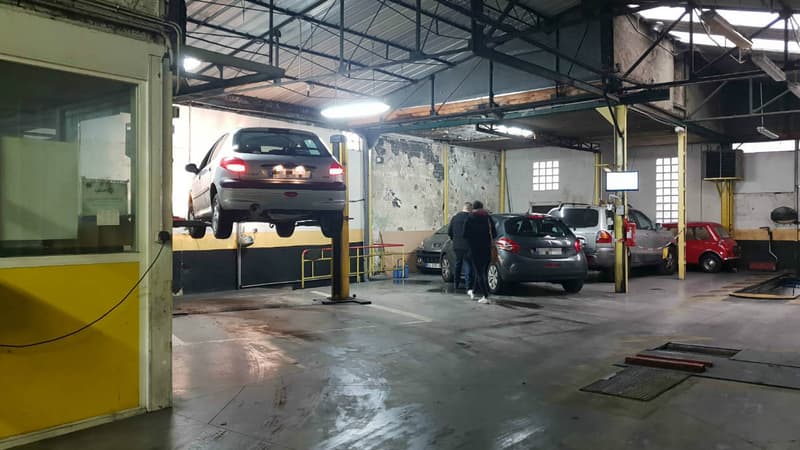It is an obligatory and habitual step for many motorists: the technical control. This medical inspection of cars is still compulsory in France, 4 years after the first registration and every 2 years thereafter.
In total, 25,558,192 technical inspections were carried out in France in 2022, an increase of 0.51% compared to 2021, according to UTAC-OTC data transmitted by Dekra. The brand has 1,560 centers in the country, with a market share close to 25% in 2022, with just over 6 million controls carried out in its network.
There are a total of 21,246,547 periodic checks, 1.06% more, and 3,045,663 counter-visits, 1.06% less.
0.74% critical failures
“Among the 3 levels of breakdowns, critical breakdowns fortunately affect a small proportion of the controlled vehicles, with a prescription rate of 0.74% in 2022,” underlines the Dekra press release.
Critical failures indicate a major defect, with a ban on circulation the day after the technical inspection. Therefore, it is necessary to carry out the necessary repairs and their counter-visit during the day in order to be able to drive freely again (otherwise, the counter-visit must be carried out within two months).
In the top 3 of the critical failures observed we find the visible or damaged cord of the tires, the effectiveness of less than 50% of the limit value of the parking brake and the non-functioning of the brake lights (without a light source). But with prescription rates that logically remain, and luckily, very low, around 0.2% of invoiced vehicles.
18.70% major failures
Major, less serious failures represent 18.70% of inspections in 2022, a slight decrease compared to 2021 which showed a rate of 19.15%.
A major failure also requires a follow-up visit within two months, but the vehicle can continue to be driven within this time period.
The top 3 most observed failures remain unchanged compared to 2021 but in a different order. Thus, in the first place, we find the poor orientation of the low beams (4.58%), the tires seriously damaged, notched or presenting an inadequate assembly (3.15%) and the opacity measurements that are unstable or out of limits for vehicles. diesel (2.85%). .
Fewer diesel engines and many overdue checks
“We also note that the share of diesel vehicles is still significant, but has decreased slightly from 66% in 2021 to 64% in 2022. Hybrid and electric vehicles, while still representing a small proportion of checks, are increasing significantly to 1.2 % and 0.34%, respectively. %”, explains Rémi Courant, Dekra’s technical and quality director, quoted in the press release.
Dekra also points out that many motorists carry out their technical inspection late, almost 20%, and therefore risk a fixed fine of 135 euros, or even the immobilization of the vehicle in the most serious cases.
But it is above all the risk in terms of road safety that is pointed out:
“We can estimate, if we project ourselves at the national level, between 1 and 2 million the number of vehicles that circulate permanently with an outdated technical control. In other words, between 200,000 and 400,000 vehicles have major faults and 10,000 to 20,000 with critical faults. defects that represent an immediate risk to road safety”.
Two novelties in 2023
From May 20, 2023, two new measures will apply in France. The first will refer to the eCall emergency call system, “which will make it possible to check that the vehicle is correctly equipped with the system and that it does not present obvious faults. As a reminder, this system is mandatory on all new types of light vehicles from 1 April 2018,” says Dekra.
The technical inspection will now also check the OBFCM (“On-Board Fuel Consumption Monitoring”), in application of a European regulation, by recording the fuel and energy consumption data recorded by this system installed in vehicles on the road. from January 1, 2021. “The data collected, with the consent of the vehicle owner, will not be used directly within the framework of technical control, but will be transmitted to the European Commission.”
Source: BFM TV


